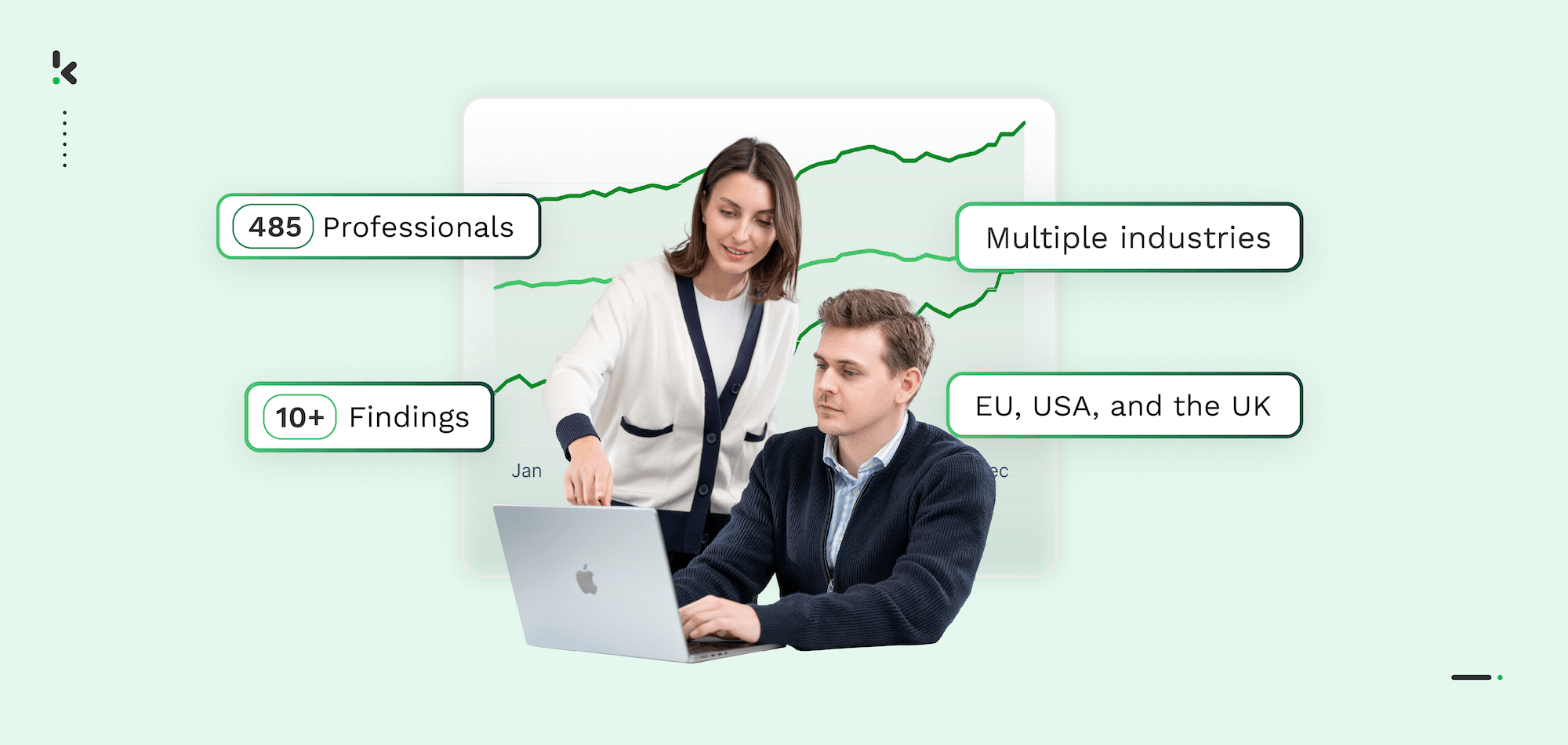

Employee views on AI are shifting fast. What was once met with hesitation is now embraced with growing optimism, as more professionals see automation as a valuable part of their daily work. But how deep does that positivity run — and where are the concerns?
To find out, Klippa, in partnership with Databox, surveyed 485 professionals across the United States, the European Union, and the United Kingdom. We asked them how they experience AI in the workplace, what they expect from it, and where they believe companies are falling short.
The results show a clear transformation. Over 85% of employees now see AI in a positive light, and most believe it makes them more efficient and frees up time for creative, strategic work. Yet nearly half say they lack proper training, and many remain cautious about risks like bias, privacy, or job security.
In this article, we’ll break down what employees really think about AI, uncover the biggest opportunities and risks, explore regional and industry differences, and share how organizations can turn optimism into lasting results.
Report Highlights: AI in the Workplace
- 85%+ of employees now view AI positively, a sharp increase from last year.
- 9 in 10 believe AI boosts efficiency and productivity.
- 40% say automation frees them to focus on more creative and strategic work.
- Nearly 50% feel their companies don’t provide enough training on AI and automation.
- Concerns remain around privacy, bias, and job security.
- Regional differences: EU employees are more optimistic, while UK workers are most fearful of job loss.
- Industry differences: Banking & Finance is unanimously positive, while IT/Software shows the biggest training gap.
Bottom line: Employees are more optimistic than ever about AI’s role at work, but they need better training and stronger reassurances around ethics and job security.
How do employees feel about AI in the workplace?
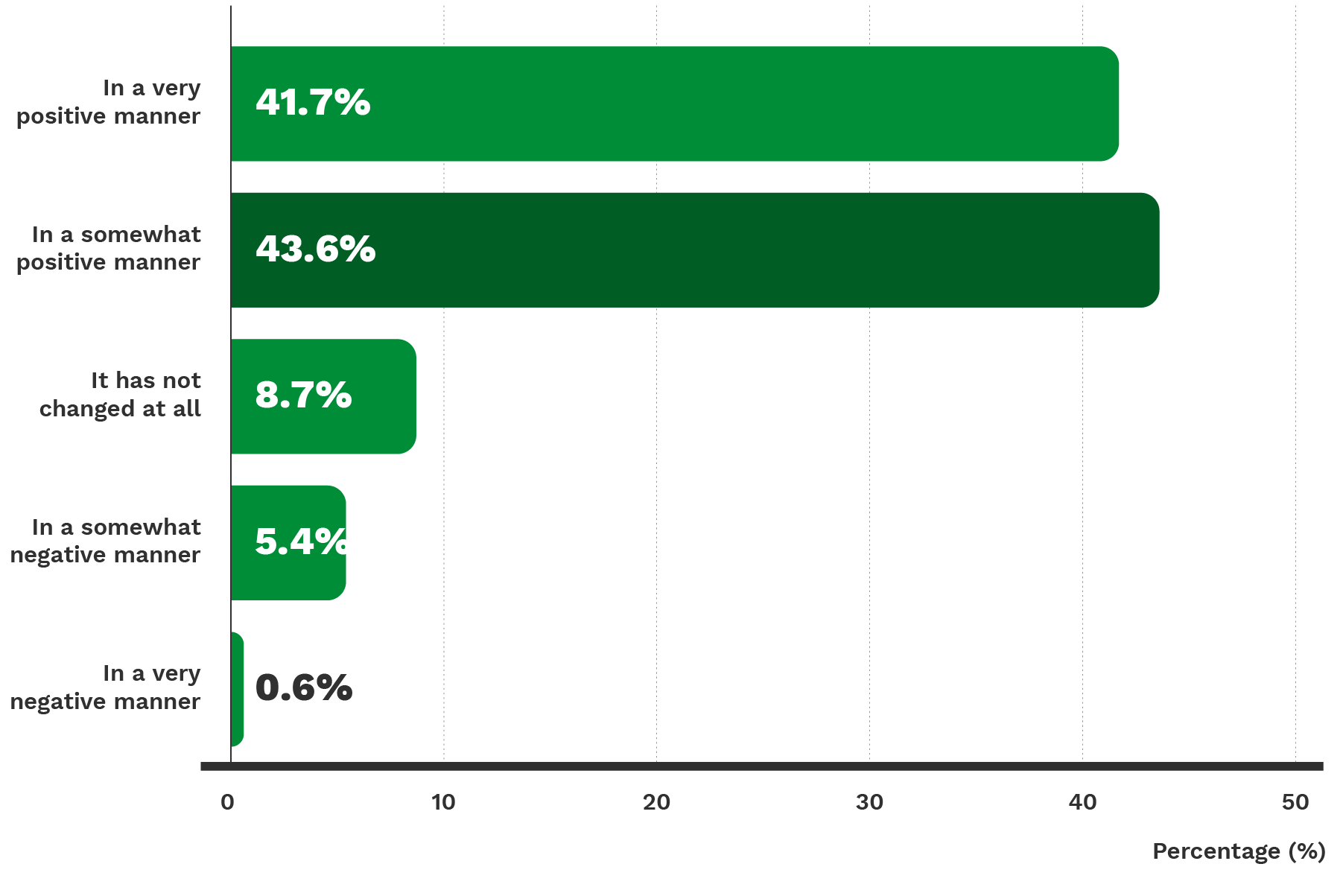

The perception of AI in the workplace has taken a dramatic turn in just a year. More than 85% of employees now view automation positively, compared to far lower numbers in previous studies. Very negative opinions have nearly disappeared.
For many professionals, AI is no longer an abstract buzzword. It’s a daily reality — streamlining tasks, boosting efficiency, and shaping how work gets done.
As Menno Fokkema, CEO of DataNorth AI, puts it:
“In the past, we often had to explain what AI is and its potential applications. Today, that’s no longer necessary – most people understand what AI is. However, the question of how to effectively leverage it remains a significant challenge for organizations worldwide.”
This shift shows not just acceptance, but growing enthusiasm. Employees are ready to embrace AI, as long as it’s implemented thoughtfully and with the right support.
Does AI really make employees more productive?
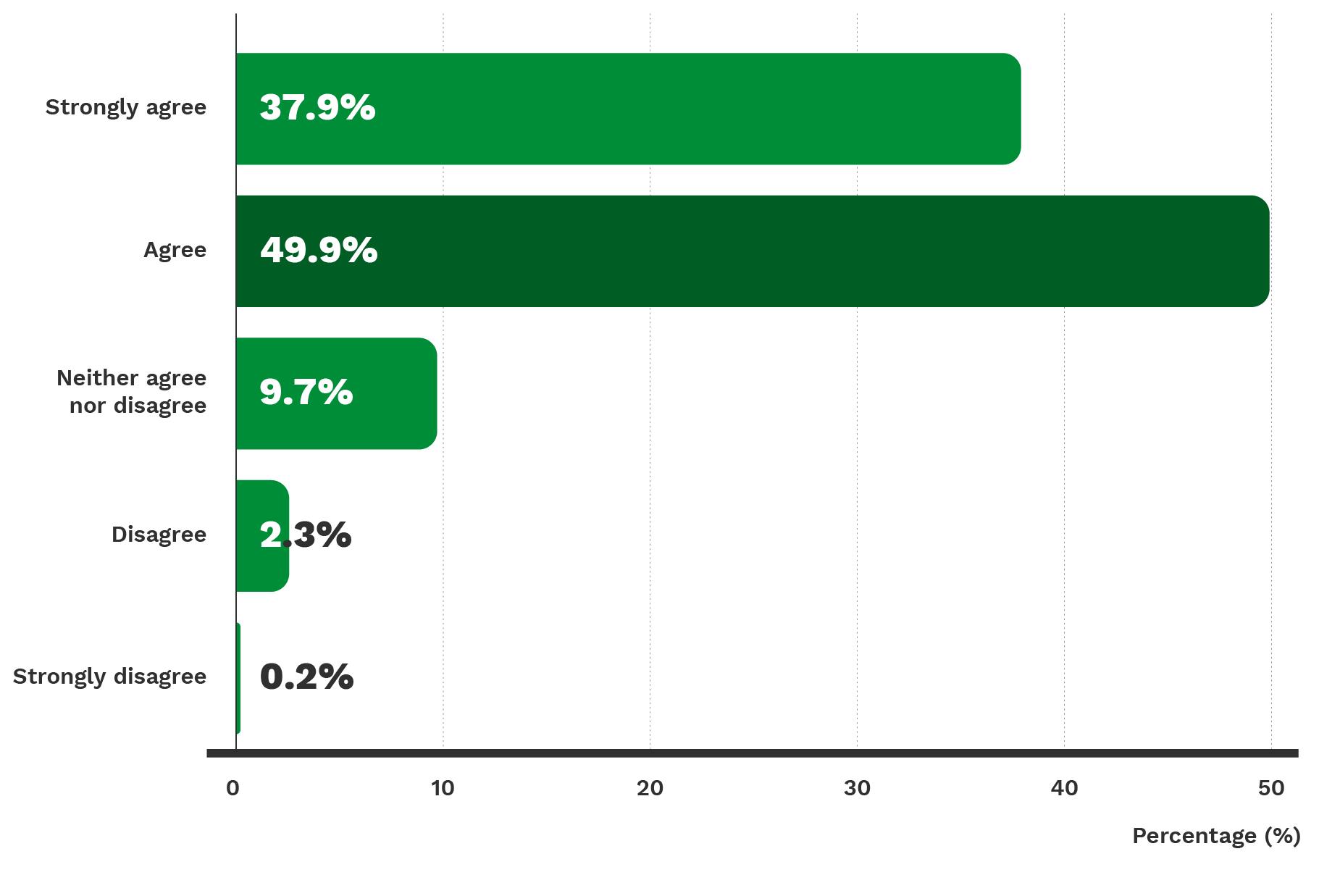

The short answer is yes. Nearly 9 in 10 employees report that AI improves efficiency, helping them complete tasks faster and with less effort.
For about 40% of professionals, automation goes even further: it takes over routine chores and creates space for creative, strategic, and high-value work. Instead of being stuck in admin tasks, employees can spend more time on innovation, problem-solving, and driving results.
As Bengt Wessborg, AI entrepreneur at Ghostar, explains:
“The rise of generative AI reflects how we choose to innovate responsibly and shape our shared unlimited future.”
Peter Caputa, CEO of Databox, adds:
“While almost everyone uses ChatGPT, Google Gemini, Perplexity and other AI chatbots, the real magic is happening when existing software companies integrate AI into their offerings.”
The bottom line: AI is proving itself as a productivity booster, not just a passing trend.
Are companies providing enough AI training for employees?
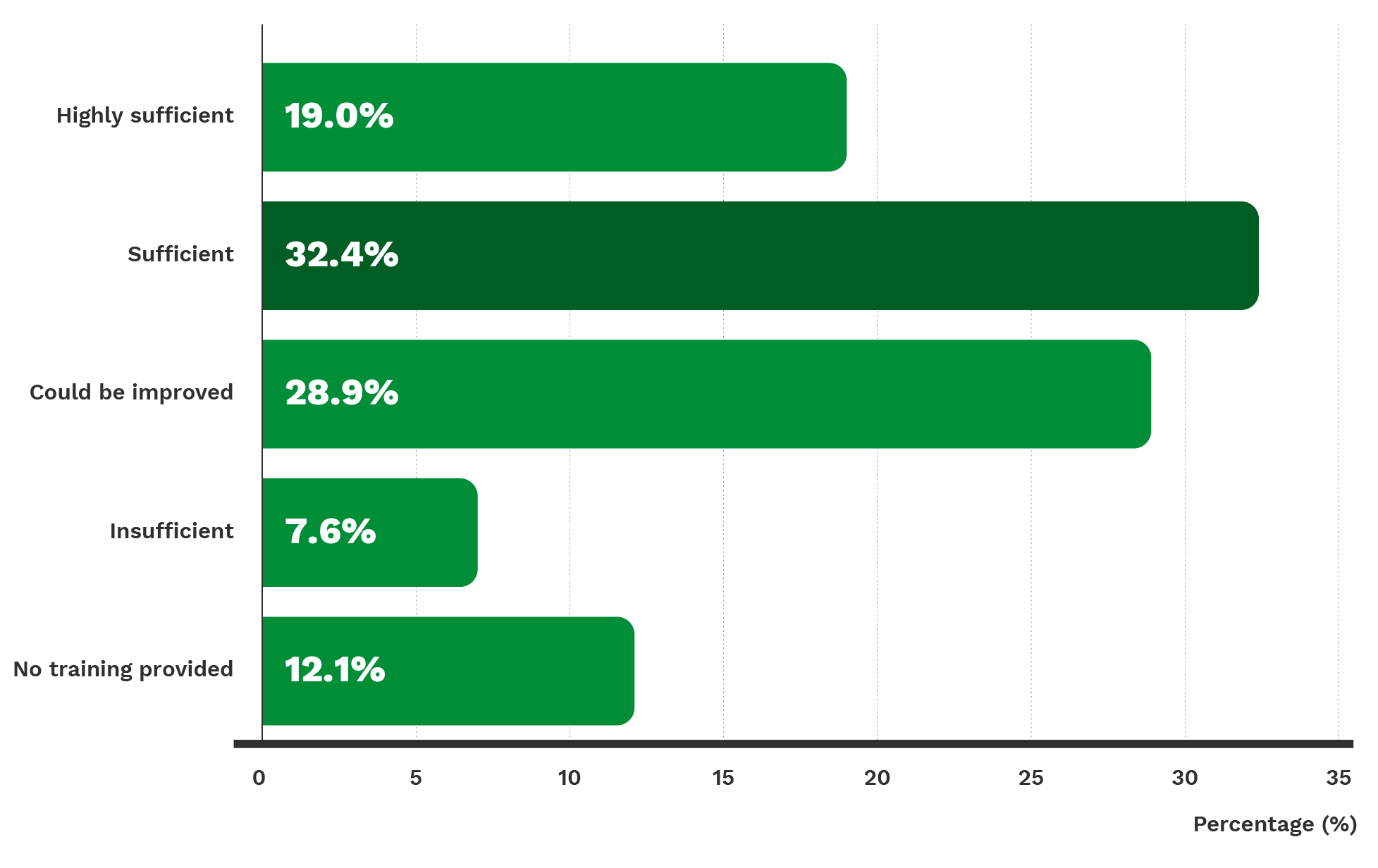

Not quite. Nearly half of professionals say their organizations don’t offer enough training to help them use AI and automation effectively. For many, the technology is there, but the knowledge to apply it confidently is missing.
The gap is especially visible in Europe, where employees report falling behind the US and UK in terms of AI education. Even more surprising, workers in IT and software — the industries closest to the technology — say they feel the least supported by their companies.
As Mike Allton, founder of The Social Media Hat, explains:
“Ignoring employee training is like building a high-performance race car and then expecting someone to win a race with no driving experience. Companies must invest in thorough AI training to empower their employees and unlock AI’s full potential.”
The message is clear: businesses can’t just implement AI and expect results. Without proper training, adoption stalls and opportunities are lost.
What concerns do employees have about AI at work?
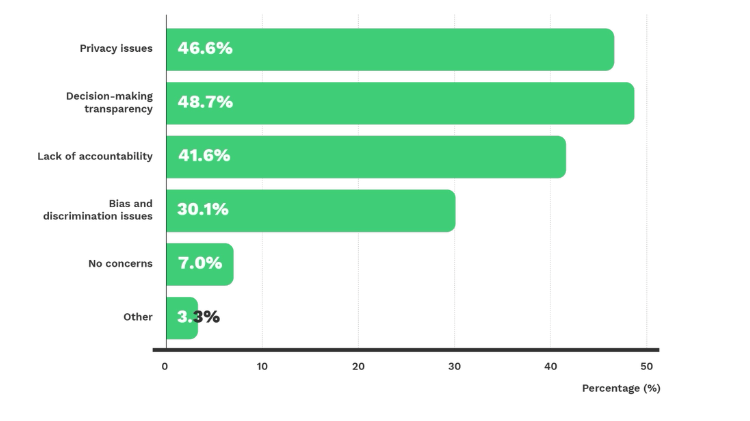

Despite growing optimism, employees still have real concerns about AI in the workplace. The biggest issues center on privacy, accountability, and bias — areas where trust is fragile and mistakes can have serious consequences.
Job security is another worry. Employees in the UK and US are the most likely to fear that automation could displace roles, while their peers in the EU express less anxiety on this front. The result is a mix of optimism and caution: workers see the benefits of AI but want guardrails to protect fairness and opportunity.
As Kauna Malgwi, an AI consultant, emphasizes:
“If AI is rolled out without transparency, employees will always be skeptical. Clear communication and responsible use are essential to building trust.”
For companies, the challenge is to strike a balance: leverage the efficiency of AI while addressing ethical, social, and security concerns head-on.
Do perceptions of AI differ by region or industry?
Yes, and the differences are striking.
- In the European Union, employees are among the most optimistic about AI’s potential. They report fewer fears about job loss compared to their peers in the US and UK.
- In the United Kingdom, the mood is more cautious. Workers are the most likely to worry about displacement, reflecting ongoing debates about automation and employment.
Industry comparisons also reveal contrasts.
- Banking and Finance professionals are overwhelmingly positive, with some groups reporting near-unanimous support for AI.
- On the other hand, employees in IT and Software — the sector closest to the technology — express frustration over training gaps. Despite their technical expertise, many feel their organizations haven’t equipped them with enough structured guidance.
The conclusion: while acceptance of AI is growing everywhere, local context and industry culture play a big role in shaping how employees perceive the technology.
What should business leaders learn from employee perceptions of AI?
The findings deliver a clear message: employees are ready for AI, but success depends on how organizations implement it.
Here are the biggest takeaways for leaders:
- Optimism is strong → Over 85% of employees view AI positively, showing that acceptance is no longer the barrier it once was.
- Productivity gains are real → 9 in 10 say AI makes them more efficient, and 40% report shifting to higher-value work.
- Training is the missing link → Nearly half of professionals feel unprepared, even in industries closest to AI. Without investment in skills, enthusiasm risks turning into frustration.
- Trust must be built → Privacy, bias, and job security are still concerns. Transparent policies and ethical safeguards are essential.
- Context matters → Regional and industry differences highlight the need for tailored strategies rather than one-size-fits-all adoption.
For leaders, the opportunity is huge. By closing the training gap and addressing concerns directly, businesses can unlock the full potential of AI while strengthening employee confidence in the process.
How can Klippa help businesses adopt AI responsibly?
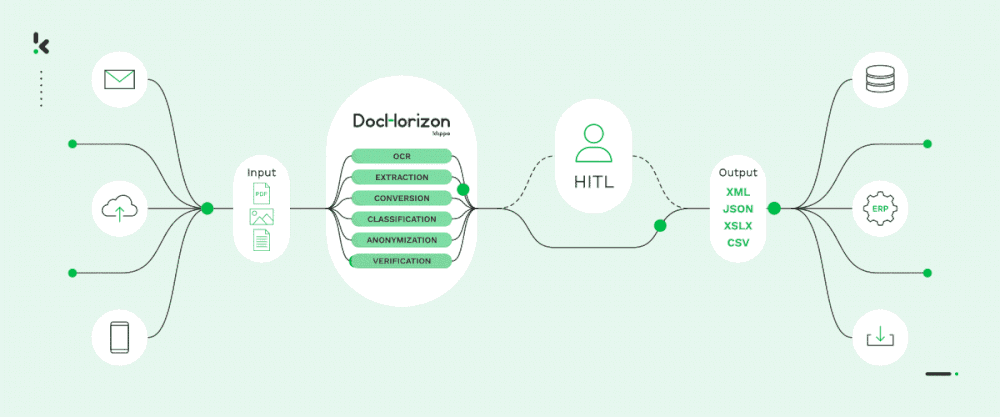

The research makes one thing clear: employees want AI to help them work smarter, not harder. But adoption only succeeds when it’s done transparently, responsibly, and with the right support. That’s where Klippa comes in.
With Klippa DocHorizon, organizations can:
- Automate repetitive workflows → free employees from manual, time-consuming tasks.
- Boost productivity safely → implement AI in a way that builds trust rather than fear.
- Integrate seamlessly → APIs connect easily with existing tools and processes.
- Ensure compliance and security → meet global data privacy standards while scaling automation.
- Adapt to company size → from small businesses to enterprises, Klippa offers flexible, tailored solutions.
Book a demo with Klippa today and see how responsible AI adoption can improve productivity while keeping your teams confident and empowered.
Frequently Asked Questions About AI in the Workplace
Employees report higher efficiency, less time spent on repetitive tasks, and more room for creative, strategic work.
Yes! Nearly 9 in 10 professionals say AI improves productivity, with 40% shifting to higher-level tasks.
Privacy, data security, bias, and the potential for job loss remain top concerns, especially in the UK and US.
Not fully. Almost half say their company training is inadequate, leaving them unsure how to get the most out of the tools provided.
EU employees are generally the most optimistic. UK workers express the most concern about job displacement, while US professionals sit in between.
Banking & Finance leads with nearly unanimous positivity, while IT and Software employees are most critical about training.
By automating repetitive tasks, ensuring compliance, and integrating seamlessly into existing workflows, Klippa makes AI adoption smoother and safer for employees.